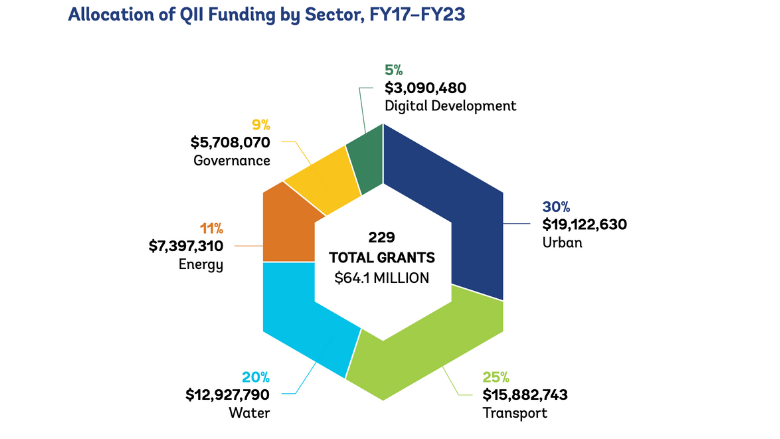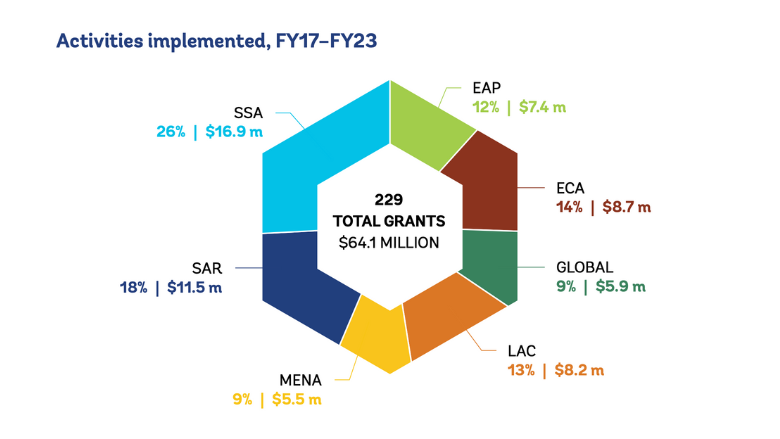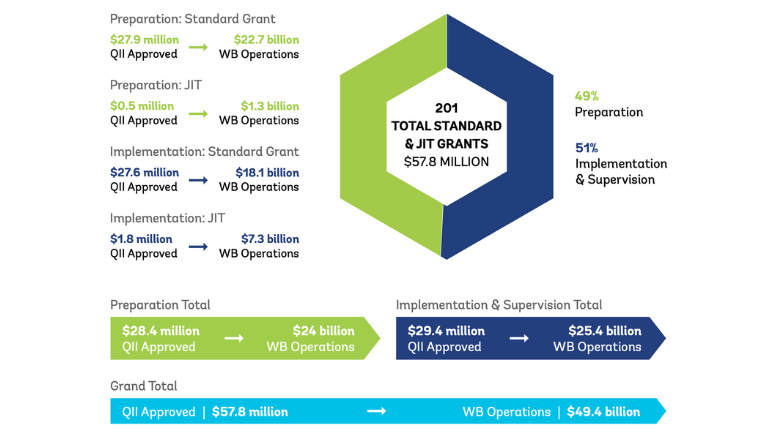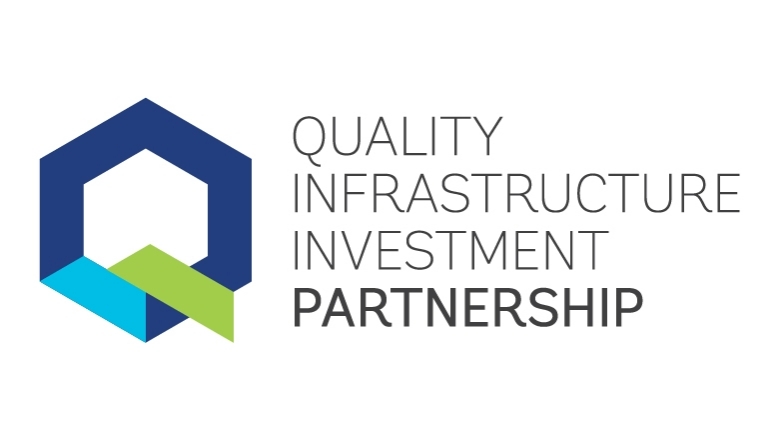Demand for QII Partnership funding remains strong. By the end of FY23, an additional 54 grants were approved for a total of $14.2 million, bringing the total number of grants awarded throughout the QII Partnership’s tenure (FY17–FY23) to 229 for a total value of $64.1 million.
QII: Advancing Green, Resilient, Inclusive Development
FY17–FY23 THE QII PARTNERSHIP PORTFOLIO
SECTOR IMPACT
Priority sectors continue to be urban infrastructure (30 percent), transport (25 percent), and water (20 percent). FY23 also saw steady growth in energy (11 percent), digital development (5 percent), and governance (9 percent). About 50 percent of QII standard grants in FY23 include a digital component related to the planning, design, implementation, and management of infrastructure projects, with an increased focus on enhancing cybersecurity as well as efficiency and transparency.

GEOGRAPHICAL REACH
The number of countries reached by the QII Partnership continues to grow. By the end of FY23, QII Partnership grants reached 75 countries across all regions, up from 66 in the prior fiscal year. The top five recipient countries, each with over $2 million in grants, are India ($5.2 million), Bangladesh ($3.2 million), Indonesia ($2.4 million), Mozambique ($2.2 million), and Brazil ($2.1 million). Argentina, Djibouti, Mongolia, Nepal, Peru, Philippines, Tanzania, and Viet Nam each received more than $1 million.

Sub-Saharan Africa (SSA) has become the biggest beneficiary region, receiving nearly $17 million—over one-quarter of total funding—since FY17. The South Asia Region (SAR) follows with $11.5 million (18 percent), with Europe and Central Asia (ECA) in third place with $8.7 million (14 percent).

THE QII PARTNERSHIP'S IMPACT ON WORLD BANK OPERATIONS
Since its inception, the QII Partnership has approved about $57.8 million for 201 standard and JIT grants, up from $47 million approved by the end of FY22. These grants help World Bank operational teams incorporate the QII Principles in infrastructure projects valued at almost $50 billion. Grants support the preparation and implementation of World Bank operations in equal measure. QII Partnership grants add significant value to World Bank infrastructure operations: every dollar of QII Partnership funding supports approximately $850 in World Bank investments.

